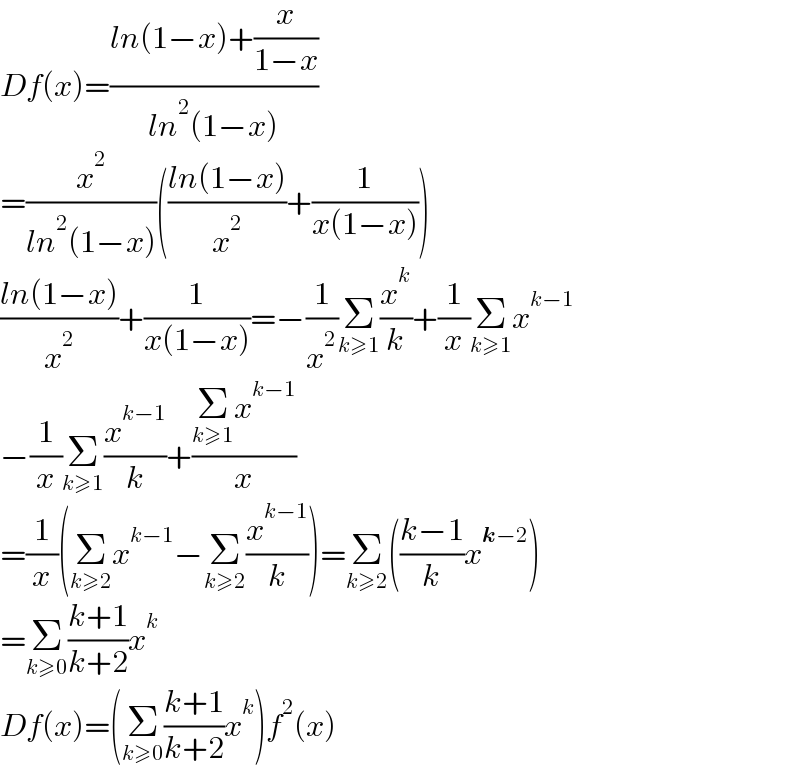
Question and Answers Forum
Question Number 161567 by HongKing last updated on 19/Dec/21
![let f(x) be f(x) = (x/(ln(1 - x))) prove there exists a sequence {a_k } such that D[f(x)] = [Σ_0 ^( ∞) a_k x^k ] [f(x)]^2](Q161567.png)
Answered by mindispower last updated on 19/Dec/21
![what do you mean By D[f(x)]?](Q161568.png)
Commented by HongKing last updated on 19/Dec/21

Answered by mindispower last updated on 19/Dec/21

Commented by HongKing last updated on 19/Dec/21

Commented by HongKing last updated on 20/Dec/21

